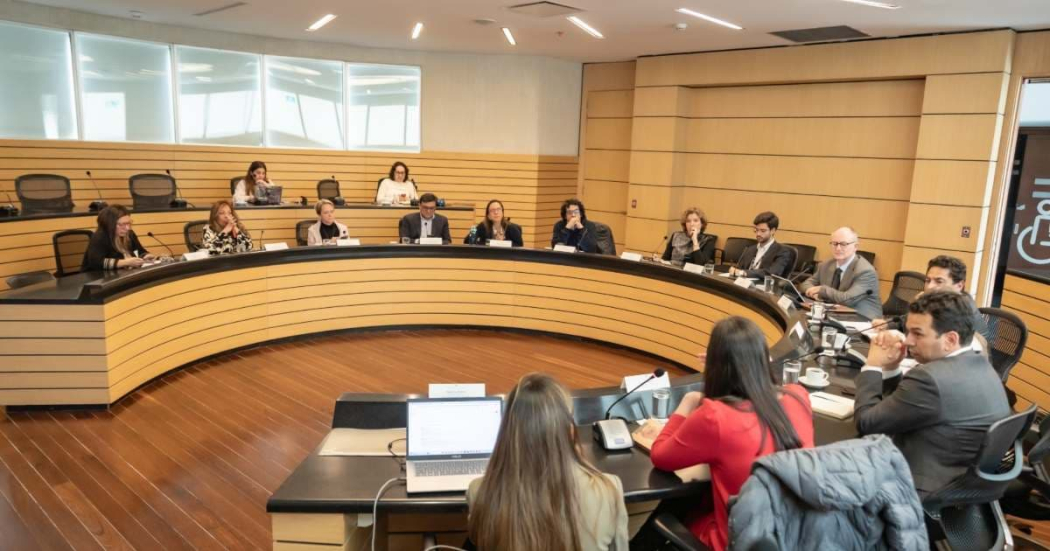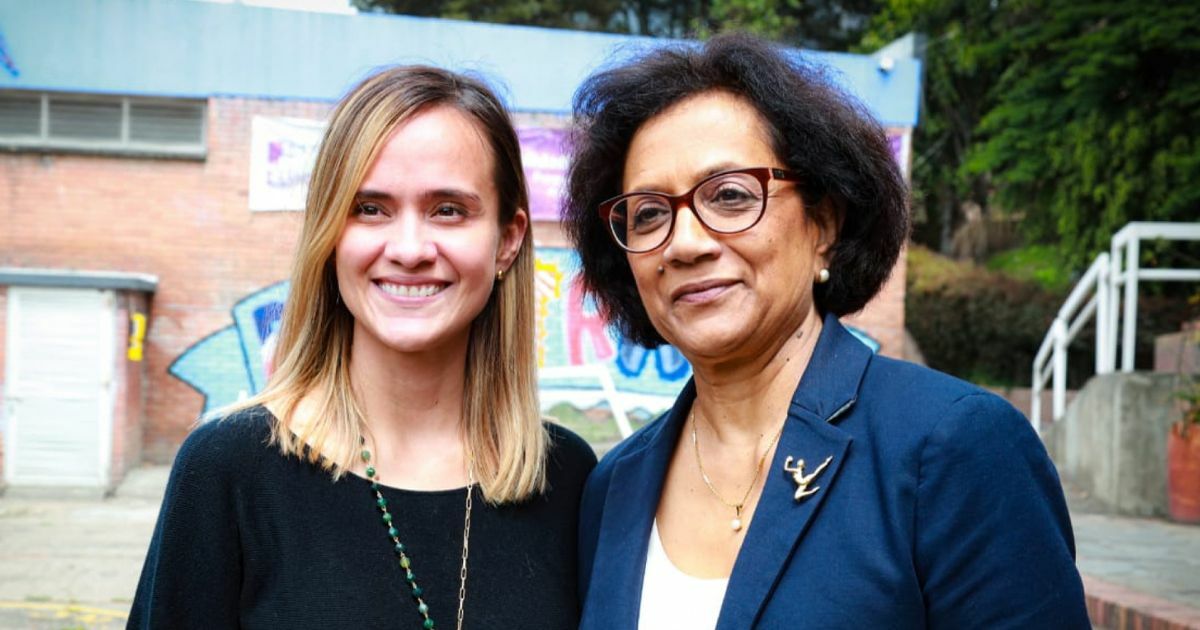Translated by Andrés Martínez Forero
This Tuesday, Sandra Borda, the Special Adviser for Bogotá's International Relations, facilitated a meeting between the secretaries of sectors responsible for the development and implementation of social welfare policies, and a team from the Inter-American Development Bank (IDB), led by Fernando Regalía, Social Sector Manager.
The primary goal of this meeting was to explore innovative and coordinated cooperation actions across all city sectors to strengthen Bogotá's social policies and assess the progress of current projects backed by the IDB.
Special Adviser Borda expressed her gratitude for the IDB's ongoing support and emphasized the importance of this partnership in tackling the city's social challenges. "The spirit of these inter-institutional dialogue spaces is to convey the administration's vision and expectations and establish direct and coordinated work streams with the involved sectors, aiming for greater impacts aligned with the City Development Plan," she highlighted.
Following, the post by the Bogotá International Relations Advisory on the X network about this visit:
Coordinamos un encuentro clave entre las secretarías responsables de las políticas de bienestar social de Bogotá y un equipo del Sector Social de @el_BID.
— Relaciones Internacionales Bogotá (@BogotaInter_nal) February 28, 2024
🤝🏽Articulamos acciones de cooperación alineadas al Plan de Desarrollo, para fortalecer las políticas sociales de la ciudad. pic.twitter.com/WeUwPO8A7v
On this matter, Fernando Regalía reiterated the IDB's intention to support various initiatives underway in Colombia's capital, especially those aimed at increasing justice and social welfare for its citizens. "We are very interested in facilitating work with local governments. We want to present our offerings and understand their expectations to achieve a cross-cutting work approach with a more programmatic focus that allows us to achieve greater impacts," he stated.
While Bogotá currently benefits from the IDB's support primarily in the mobility sector, significant assistance has also been extended to various social sector initiatives. Highlights include enhancing care for individuals with disabilities through the Care System, facilitating women's labor inclusion in the transportation sector, and boosting reading programs within the education sector.
Currently, the Secretariats of Social Integration, Economic Development, Health, Education, and Women's Affairs are advancing significant projects with the IDB. These projects focus mainly on supporting and integrating vulnerable populations, improving employability, combating violence against women, and eliminating educational disparities to improve access to secondary and higher education.
In light of new collaboration opportunities between the IDB and Bogotá, Roberto Angulo Salazar, the Secretary of Social Integration, underscored the necessity of prioritizing efforts to mitigate extreme exclusion forms, such as homelessness. He also highlighted the importance of initiatives aimed at food security and combating hunger. "A critical approach involves coordinating subsidy systems, and in-kind contributions to deliver integrated services linked to productive integration efforts, including training and employability sectors," he stressed.
In the area of Economic Development initiatives, there's a focus on achieving greater labor inclusion for youth, enhancing access to microloans for local businesses, and building capacities to encourage export and business internationalization. "We act as a bridge to the private sector, aiming to create better alignment between supply and demand to generate more significant impacts that benefit the most vulnerable populations by generating interest in productive sectors," stated María del Pilar López, the Secretary of Economic Development.
For the Health Sector, it's a priority to rethink services to align them with rapid demographic changes leading to an increasingly older population. Additionally, overcoming access barriers that create inequities and violate citizens' rights is crucial. "Even though we offer the best services in the country or perhaps the region, many city areas lack access to these services, necessitating their decentralization to address inequality," emphasized Gerson Orlando Bermont, the Secretary of Health.
Regarding education projects, alternatives were explored for strengthening comprehensive development and learning processes for early childhood, curricular enhancement, and the development of teaching competencies in mathematics and bilingualism. "We must undertake a robust effort to make secondary education more attractive and relevant, incorporating aspects of training for work and employability," said Isabel Segovia, the Secretary of Education.
Finally, the Secretary of Women's Affairs seeks the IDB's support to innovate the services provided by the Care System, strengthen its cultural transformation strategy, and deepen actions against gender-based violence. "We want to broaden our approach, not only by offering care services but also by providing prevention services, related to sexual harassment and safety in public spaces for women," specified Angie Mesa, the acting Secretary of Women's Affairs.
As a conclusion to this meeting, the work priorities for policy and social welfare among the Secretariats of Economic Development, Social Integration, Health, Women's Affairs; and the IDB were established. Also outlined were the steps to be taken together for the development of an intersectoral work system.
About the IDB:
The IDB is a development institution that has become the primary source of financing and multilateral expertise for sustainable economic, social, and institutional development in Latin America and the Caribbean.
From the IDB, specialists in labor markets, Waldo Tapia; gender and diversity, Juanita Bernal; health and social protection, José Luis Ortiz; education, Carolina Méndez; and migration, Manuela Palacio, also attended this working table.








